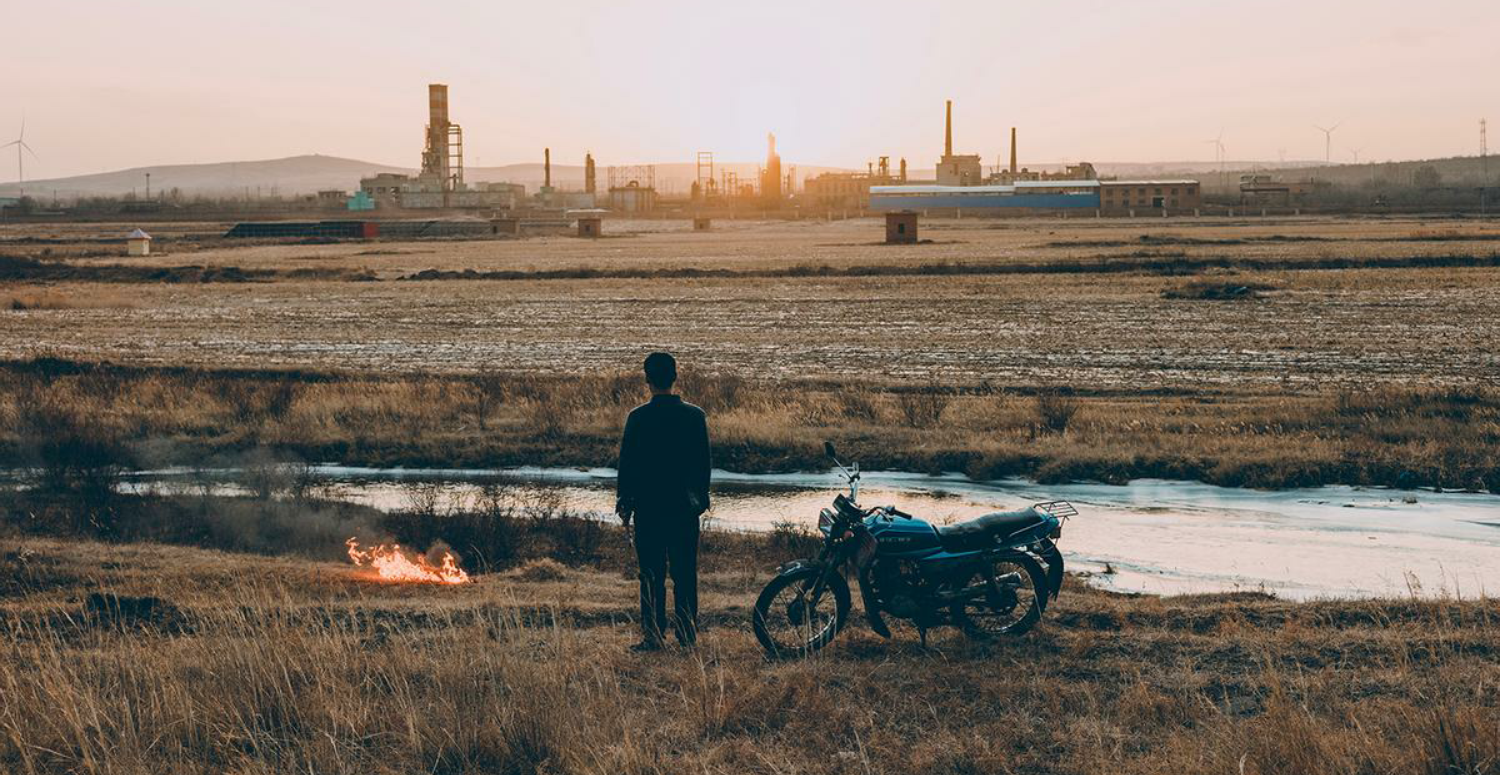Les Feux Sauvages
风流一代 / Fēngliú yīdài
(Caught by the Tides)
2024/2025

FR EN
Dans une Chine en pleine mutation depuis une vingtaine d’années, le personnage mutique et mélancolique de Qiao erre d’une ville à une autre, à la recherche d’un homme qu’elle aime mais qui semble vouloir l’oublier. Réalisé par Jia Zhangke avec dans le rôle d’une héroïne effacée son actrice fétiche (et épouse) Zhao Tao, « Les Feux Sauvages » dresse le portrait d’une « génération romantique/brillante » (titre original du film en mandarin) qui traverse le temps.
Fragmentaire et à première vue décousu, « Les Feux Sauvages » est en réalité un film recousu. Composé pour les deux premiers tiers de séquences non utilisées de projets précédents, le long-métrage a en effet été imaginé et conçu par Jia Zhangke lors des longs confinements qu’a imposés la République Populaire de Chine à ses habitants lors de la pandémie de Covid-19. Le scénario a donc été écrit bien après l’essentiel des prises de vue, les premières images datant de 2001 et les dernières de 2023. En découle ainsi un film à chroniques avec un fil directeur particulièrement ténu – notamment durant tout le premier tiers – et avec des formats et des qualités d’image assez hétéroclites.
« Les Feux Sauvages » se rapproche par conséquent du documentaire, illustrant les métamorphoses titanesques de l’Empire du Milieu en quelques années. L’on passe ainsi d’une ville industrielle, polluée et sinistrée du Shanxi (Datong) à une cité hyper moderne du Guangdong (Zhuhai), en passant par les vallées du Sichuan dont certaines localités sont progressivement détruites et englouties suite à la construction du gigantesque barrage des Trois Gorges sur le Yangzi Jiang (Fengjie). Indirectement, Jia Zhangke se fait donc le témoin des transformations de son pays, marqué par des bouleversements économiques, écologiques, sanitaires et sociaux que traverse aussi de façon presque spectrale le personnage de Qiao. En faisant d’elle une forme de figure allégorique de la Chine contemporaine, le réalisateur propose ainsi des arrêts sur image d’un pays riche de par ses différentes dynamiques et de par sa complexité.
Axel Chevalier
In China, which has been in the throes of change for the past twenty years, Qiao’s mute, melancholy character wanders from one city to another, in search of a man she loves but who seems intent on forgetting her. Directed by Jia Zhangke and starring his signature actress (and wife) Zhao Tao as the elusive heroine, “Caught by the Tides” is a portrait of a “brillant/romantic generation” (the film’s original title in Mandarin) that stands the test of time.
“Caught by the Tides” is a fragmented and, at first glance, disjointed film but in fact, it is actually very much a stitched-together movie. The first two-thirds of the film is indeed made up of unused footage from previous projects, and was imagined and crafted by Jia Zhangke during the long periods of isolation imposed by the People’s Republic of China on its inhabitants during the Covid-19 pandemic. The script was thus written long after most of the filming had taken place, with the first shots taken in 2001 and the last in 2023. The result is a chronicle film with a particularly tenuous guiding thread (particularly throughout the first third) and a wide variety of aspect ratios and picture styles.
“Caught by the Tides” therefore feels more like a documentary, illustrating the titanic transformations of the Middle Kingdom in just a few years. We thus go from a polluted, disaster-stricken industrial town in Shanxi (Datong) to a hyper-modern city in Guangdong (Zhuhai), through the valleys of Sichuan, where certain localities are gradually being destroyed and swallowed up following the construction of the gigantic Three Gorges Dam on the Yangtze (Fengjie). Indirectly, Jia Zhangke bears witness to the transformations of his country, shaped by the economic, ecological, health and social upheavals that Qiao’s character almost spectrally navigates. By making her a kind of allegorical figure of contemporary China, the director offers a series of snapshots of a country rich in its various vitalities and complexities.
Axel Chevalier

